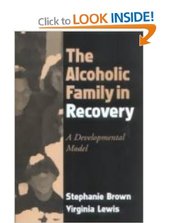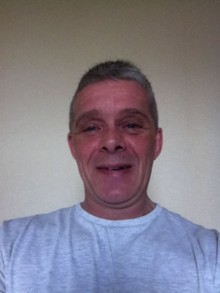A series of my blog posts based on Stephanie Brown’s wonderful book, A Place Called Self: Women, Sobriety, and Radical Transformation. In her book, Stephanie talks about what happens to women in recovery, how they think, how they feel, their problems, the good things, etc. (The book is relevant to men as well!)
What facilitates recovery from mental health problems?: Scottish Recovery Network
 It is important to note the close similarity in the nature of elements that underlie recovery from serious substance use problems and recovery from mental health problems.
It is important to note the close similarity in the nature of elements that underlie recovery from serious substance use problems and recovery from mental health problems.
An excellent 2007 paper published by the Scottish Recovery Network by Wendy Brown and Niki Kandirikirira, entitled Recovering Mental Health in Scotland: Report on Narrative Investigation of Mental Health Recovery, provides important insights into the latter. This research involved the recovery narratives of 64 individuals in Scotland who identified themselves as being in recovery or recovered from a long-term mental health problems. Here is what the authors write in the Executive Summary of the Report (NB. That I have broken up one long paragraph for ease of reading online]:
‘Across the stories consistent internal and external elements could be found. For a recovery journey to begin and continue to prosper, narrators accounts of their experiences suggest that six basic internal (individual and self controlled) elements were required (though not necessarily in this order and not necessarily seen in every case):
Learning from the Experts
 When I was a teenager, I competed in chess competitions around the UK, including the British Under-18 championship on two occasions. I was my county junior champion. To be competitive, I had to study chess theory and practice. I learnt from those people who were champions at what they did, including world champions. Not by being in the same room as them—although I did play Anatoly Karpov, who was later to be world champion, in a simultaneous exhibition—but by their games and introspections. I learnt from the experts.
When I was a teenager, I competed in chess competitions around the UK, including the British Under-18 championship on two occasions. I was my county junior champion. To be competitive, I had to study chess theory and practice. I learnt from those people who were champions at what they did, including world champions. Not by being in the same room as them—although I did play Anatoly Karpov, who was later to be world champion, in a simultaneous exhibition—but by their games and introspections. I learnt from the experts.
You would have thought that people working in the addiction field would also be learning from the experts—the people who are in recovery, or are recovering, from a serious substance use problem. Many do. But… you’d be surprised to know that this goes on far too little, at least from my experience.
Classic Blog: ‘Family Stories, Secrets and Survival’ by Dr. Judith Landau
This talk will provide you with insights into intergenerational trauma and how addiction arises as a coping response. It will show you a way forward to recovery and healing, through Story. Understanding the past can help us deal with the present and help create a better future.
Judith, thank you for this wonderful talk! Here is the Youtube intro:
‘Dr. Judith Landau tells the story of trauma and recovery through generations and gives clues along the way for healthier families.
Family Stories, Secrets and Survival: Dr. Judith Landau at TEDxVailWomen
I can strongly recommend this extraordinary talk from Dr Judith Landau. It’s one of my favourites, found only this morning. Thank you BDawg!
This talk will provide you with insights into intergenerational trauma and how addiction arises as a coping response. It will show you a way forward to recovery and healing, through Story. Understanding the past can help us deal with the present and help create a better future.
Judith, thank you for this wonderful talk! Here is the Youtube intro:
‘Dr. Judith Landau tells the story of trauma and recovery through generations and gives clues along the way for healthier families.
‘A Point of View: Happiness and disability’ by Tom Shakespeare
 Found this interesting article on the BBC website.
Found this interesting article on the BBC website.
‘Surveys reveal that people with disabilities consistently report a good quality of life, says Tom Shakespeare. So why is it often assumed they are unhappy?
Have you ever thought to yourself: “I’d rather be dead than disabled?” It’s not an unusual reflection. Disability, in everyday thought, is associated with failure, with dependency and with not being able to do things. We feel sorry for disabled people, because we imagine it must be miserable to be disabled.
I Am Not Anonymous: Hugh’s Story
 A blog from a great new website.
A blog from a great new website.
‘When I first heard about IAmNotAnonymous.org, I thought it was one of the coolest things to hit the recovery world. I subscribe to the idea that there is nothing shameful about being in recovery. It is my life. It has made me the man I am today. A man worthy of love and respect.
Some people believe that they need to keep their recovery a secret, I am not one of those people. Partly because the depths of my addiction was thrown into the spotlight with some unsolicited press in the form of newspaper articles in 2013. It’s quite possible that I was the last person to know that I had a problem with drugs and alcohol.
My whole life I have felt like there was a void in my soul. A missing piece of me. A void that I have constantly tried to fill with different vices.
Theresa’s Story: Through her Wired In To Recovery Blogs, Part 1
 Theresa started blogging about her recovery on Wired In To Recovery in May, 2010. Here are her first two blogs:
Theresa started blogging about her recovery on Wired In To Recovery in May, 2010. Here are her first two blogs:
‘Me (6th May, 2010)
I am 17 weeks, today, into Recovery from alcohol addiction. I have found that getting into Recovery is the hardest thing I have ever done in my life. It is also the thing I am most proud of because of the unbelievable physical and mental effort it has taken to get this far.
The fear of withdrawal and the absolute belief that I would be unable to cope without drink made me believe for a very long time, that a drunken haze would be my life until I became so distraught and heartbroken that I ended it (which I almost did) or my body just gave up the fight.
New Resource: Stephanie Brown on Recovery
 I’ve added the following to the Resources section.
I’ve added the following to the Resources section.
‘These blogs are based on Stephanie Brown’s wonderful book, A Place Called Self: Women, Sobriety, and Radical Transformation. In her book, Stephanie talks about what happens to women in recovery, how they think, how they feel, their problems, the good things, etc. (The book is relevant to men as well!)
What is Recovery? (Part 1)
“Recovery has held so many surprises for me. Some good. Some bad. I didn’t know I could hurt so much. But I also didn’t know I could love so much and be so loved.”
‘Combating Negative Self Talk: “The Poison Parrot Story”‘ by Matt Kay
 ‘Defusing involves distancing, disconnecting or seeing thoughts and feelings for what they are (streams of words, passing sensations), not what they say they are (dangers or facts). The short metaphoric story is something that I use with my clients to help to overcome our “inner voice”. Once again, try it. What’s the worst that can happen?
‘Defusing involves distancing, disconnecting or seeing thoughts and feelings for what they are (streams of words, passing sensations), not what they say they are (dangers or facts). The short metaphoric story is something that I use with my clients to help to overcome our “inner voice”. Once again, try it. What’s the worst that can happen?
Imagine you’re given a parrot. This parrot is just a parrot – it doesn’t have any knowledge, wisdom or insight. “It’s bird-brained after all,” you think.
It recites things “parrot-fashion” without any understanding or comprehension. Like I said, “It’s a parrot.”
The Roots of Addiction – Dr. Gabor Maté
‘It is critical to understand that although addiction is a problem it is also an attempt to solve a graver problem, that is, unbearable psychic pain. To understand addiction, we need to understand human pain and that takes us to focus on childhood experiences.
One of the outcomes of childhood distress is addiction and the more adversity an individual experiences in his or her childhood the higher their risk of resorting to addictive behaviour to sooth their pain, even temporarily. In other words addiction (alcohol, drugs, shopping, Internet, etc.) is an attempt to seek something from the outside that the individual is not able to generate from within.
What makes childhood experience significant is that the circuitry that modulates the brain’s reward chemicals is underdeveloped in traumatized children thus making them more susceptible to addictive behaviours and conduct disorders.
Knowing what to do to support recovery
 Here’s an excellent description of ‘tasks’ for treatment workers, recovery coaches or peer supporters. This quote is taken from Stephanie Brown’s excellent book The Alcoholic Family in Recovery: A Developmental Model.
Here’s an excellent description of ‘tasks’ for treatment workers, recovery coaches or peer supporters. This quote is taken from Stephanie Brown’s excellent book The Alcoholic Family in Recovery: A Developmental Model.
‘Being in recovery is a normal process, with clearly defined, predictable tasks and stages. It is absolutely vital for therapists to know what is normal over time in the process of recovery or they may inadvertently try to treat, stop, or fix what is normal and necessary to growth.
It is the therapists job to stay out of the way of the natural healing process, to monitor progress, and to recognize past or current roadblocks that might interfere with people’s ability to remain abstinent and engaged in recovery.
Marion’s Story: My Resilience
A number of factors have contributed to the development of Marion’s resilience and her ability to live successfully in two cultures.
‘Why I chose recovery’ by Tony A
 Tony A was one of my favourite bloggers on Wired In To Recovery. He certainly didn’t mess around on what he had to say and his blogs provided some invaluable insights into the recovery journey and also the UK addiction care system. Here is a great blog he wrote back in 2010.
Tony A was one of my favourite bloggers on Wired In To Recovery. He certainly didn’t mess around on what he had to say and his blogs provided some invaluable insights into the recovery journey and also the UK addiction care system. Here is a great blog he wrote back in 2010.
‘This is my personal perspective to why I chose recovery over addiction. You see for me my addiction fulfilled so many requirements in my life.
I enjoyed the effects of drugs, drugs suppressed my emotions, drugs gave me an identity and a reason to exist, drugs were my longest and strongest relationship, my ultimate form of support, my way of coping with the insanity of life.

 Here is a very important blog post that I
Here is a very important blog post that I 



